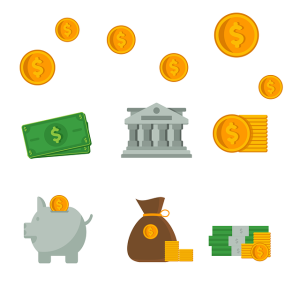Disclosure: Privacy Australia is community-supported. We may earn a commission when you buy a VPN through one of our links. Learn more.
What Do I Need to Open a Bank Account?

If you’re new to Australia or looking to open your first Australian bank account, you may be unsure what you need. Opening an account with a bank or other financial institution can be straightforward if you have everything you need before applying.
Applying online for a bank account is much quicker, but you can apply for one in person at an Australian bank branch. We’ve got you covered whichever way you want to open an account. In this article, you’ll learn all about the different bank accounts and what you need to open one in Australia.
Table of Contents:
- The Different Types of Australian Bank Accounts
- Other Eligibility Criteria
- How to Open a Bank Account in Australia
- Conclusion
- FAQs
The Different Types of Australian Bank Accounts 🏦️
You can open different types of bank accounts depending on your financial needs. Knowing what bank account you need before applying will help you decide which account suits your needs.
The different types of accounts:
- Transaction account: A transaction account, sometimes a checking account, is your everyday banking account, which you’ll use the most. You can get your salary paid into your bank account, make purchases, and pay bills and other daily finances. Everyday accounts are the most common bank accounts, and most don’t have account-keeping fees.
- Savings account: You can put any extra cash aside in savings accounts. A savings account holds excess cash and helps meet your savings goals. Most savings accounts allow you to earn interest to make the most of them.
- Deposit account: Deposit accounts are similar to savings accounts. However, you deposit money into an account to be locked away for a fixed term to earn a fixed amount of interest. Deposit terms can range from one to 16 months and usually have minimum balance requirements. There may be a monthly fee with this type of account.
- Business bank account: If you have a business, you must keep your business and personal finances separate. You can open a bank account for your business anytime if you have all the correct details. Some business bank providers charge monthly fees, but these will vary depending on the complexity of the account. When you open a business account, you gain access to additional features like business loans.
- Joint account: An account that you share with another person. Joint accounts are ideal for partners or roommates. Both account holders transfer money and withdraw it whenever they want. This account is perfect for paying household bills. You can set up automatic payments and see your household spending in one place.
Each type of account may require slightly different documentation, especially business bank accounts. The following sections will focus on what you need to open a transaction account, as it’s the most popular and used bank account for everyday purposes.
What Do I Need to Open a Bank Account
You will need specific documentation to open a bank account. Whether you open a bank account online or in your local branch, you will need the same documents as most Australian bank accounts require the same information. You can choose which ones to use out of the following:
- One form of primary ID: Australian passport, proof of age card, or a driver’s license.
- Two forms of primary non-photo identification: Birth certificate, pension card, or citizenship certificate.
- One of each: One form of primary non-photographic ID and one form of secondary ID, such as a government financial benefits notice from the past 12 months, an ATO notice of assessment or rates notice or a utility bill issued in the last three months.
When you give the documentation to the bank, you need to make sure your ID is valid and in-date and that your other documentation is recent. Otherwise, it may prolong the process of opening a bank account. On top of the above information, you’ll need to submit more personal details.
Other important details you’ll be asked for include:
- Personal information: Full name, date of birth and Australian residential address. These details will need to be on the above documentation, too.
- Contact details: You must provide your phone number and email address so the bank can contact and update you on services.
- Tax file number (TFN): The tax file number is usually optional. By sharing your TFM, you will ensure you don’t have to pay withholding tax on the interest earned from a potential savings account.
If you’re not an Australian resident and you’re looking to open an account, you may need some additional identification documents, such as:
- Proof of identity: You will need your passport to open an account. As long as the document is in date and valid, it doesn’t matter if you have a foreign passport or an Australian one.
- Reasoning: You may be asked your reason for opening an account in Australia; just be honest and tell them about your situation. The more details you give, the better.
- Arrival and duration dates: If you’re not already in the country, you must inform the bank of your arrival dates.
- Australian address: You must have proof of residence at an Australian address. If you know where you’ll be staying, you’ll have to prove it.
- Australian visa: If you’re on a working holiday, you may need to show your visa document and tax file number.
It’s important to note that you don’t need to be in Australia to open an account here, so if you’re planning to move here for studies or to work, you can open a bank account before you arrive, so it’s one less worry. It’s probably best you apply online as it’s much easier than visiting a local branch.
Other Eligibility Criteria 🗃️
As well as having the relevant documentation, there are other requirements you’ll need to meet to open a bank account. Most Australian banks will require to be the following:
- Australian resident: To open a bank account in Australia, you must be an Australian resident with an Australian residential address.
- Aged 18 and over: Most accounts require you to be at least 18 years old. However, some financial institutions offer accounts for residents under 18, but they’re usually limited in what you can do.
- Provide valid ID: You’ll need the documentation we previously mentioned. If you’re visiting a branch, you must bring it. However, if you’re opening a bank account online, you can scan it and submit the documents.
How to Open a Bank Account in Australia ➡️
Now you know what information you need to open a bank account, it’s time to get into the application.
- Choose your new bank account: Look at the different accounts online. Each financial institution will have various offers and features. Consider a wide range of bank accounts; choose the right account that suits your needs.
- Apply online or in person at a local branch: Choose your application method. You can visit a local branch, speak to an advisor, and set up your account. Or, you can go to your chosen financial institution’s website and start the application process there.
- Verify your identity: You can verify who you are with the previously mentioned identification documents. If you’re applying online, you’ll need to submit the documents, and you may be asked for a selfie or video proof of who you say you are.
- Activate your debit card: Once your account is open, you can access it immediately. You’ll typically be sent your debit card within three to five working days. Once you’ve received your debit card, your bank will prompt you to activate it.
Final Thoughts 💡️
You’re ready to open your bank account online or in the branch. Before you go, there are some additional perks of opening your everyday account online, such as:
- You can open an online savings account: You can do a lot with mobile banking, like making a new account, managing your finances and even receiving and transferring money, all from an app or online banking.
- Convenience: You can apply online with your mobile phone or laptop. You don’t need to visit a branch to create an account. You can apply for one and start using it straight away.
- Digital-only banks: A high-street bank isn’t the only financial institution that offers accounts, joint accounts and even savings accounts. Many digital banks can provide banking services, usually with bonus interest on savings accounts.
- Paperless bank statement: Reduce paper waste and go digital. You can get digital copies of your bank statement to reduce paper waste.
Frequently Asked Questions 🔎️
What Is Required to Open a Bank Account?
To open a bank account, you will need one form of primary ID, two forms of primary non-photo identification, and personal details, including your contact details and tax file number.
What Can I Use as Proof of Address?
Suppose you’re unsure what documentation you can use to prove your address. In that case, you can use a government financial benefits notice from the past 12 months, an ATO notice of assessment or rates notice, or a utility bill issued in the last three months.
Can I Open a Bank Account Online?
Yes, most Australian banks allow you to apply for a bank account online or personally at a branch. Online banking is super easy and will enable you to open an account quickly if you have all the correct documents ready.
Are There Any Monthly Fees for Opening a Bank Account?
There are usually no monthly account fees when you open a new bank account for personal use. Most transaction accounts are free and can be used whenever you want. Other account types, like deposit accounts and lines of credit, usually have monthly fees.
What Fees Come With a Transaction Account in Australia?
Most transaction accounts are free or have a fee. However, if you use an overdraft, overdraft fees and charges may be involved. Depending on your bank account provider, there may be ATM withdrawal fees. Most banks charge fees for purchases in foreign currencies but always check for fees with your bank before using your card overseas.
What Do I Need to Open a Bank Account If I’m Not an Australian Resident?
Suppose you’re not an Australian resident looking to open an account. In that case, you’ll need your passport, proof of residence at an Australian address, and your arrival dates if you’re not already in the country. If you’re on a working holiday, you may need to show your visa document and tax file number.
You Might Also Like:





